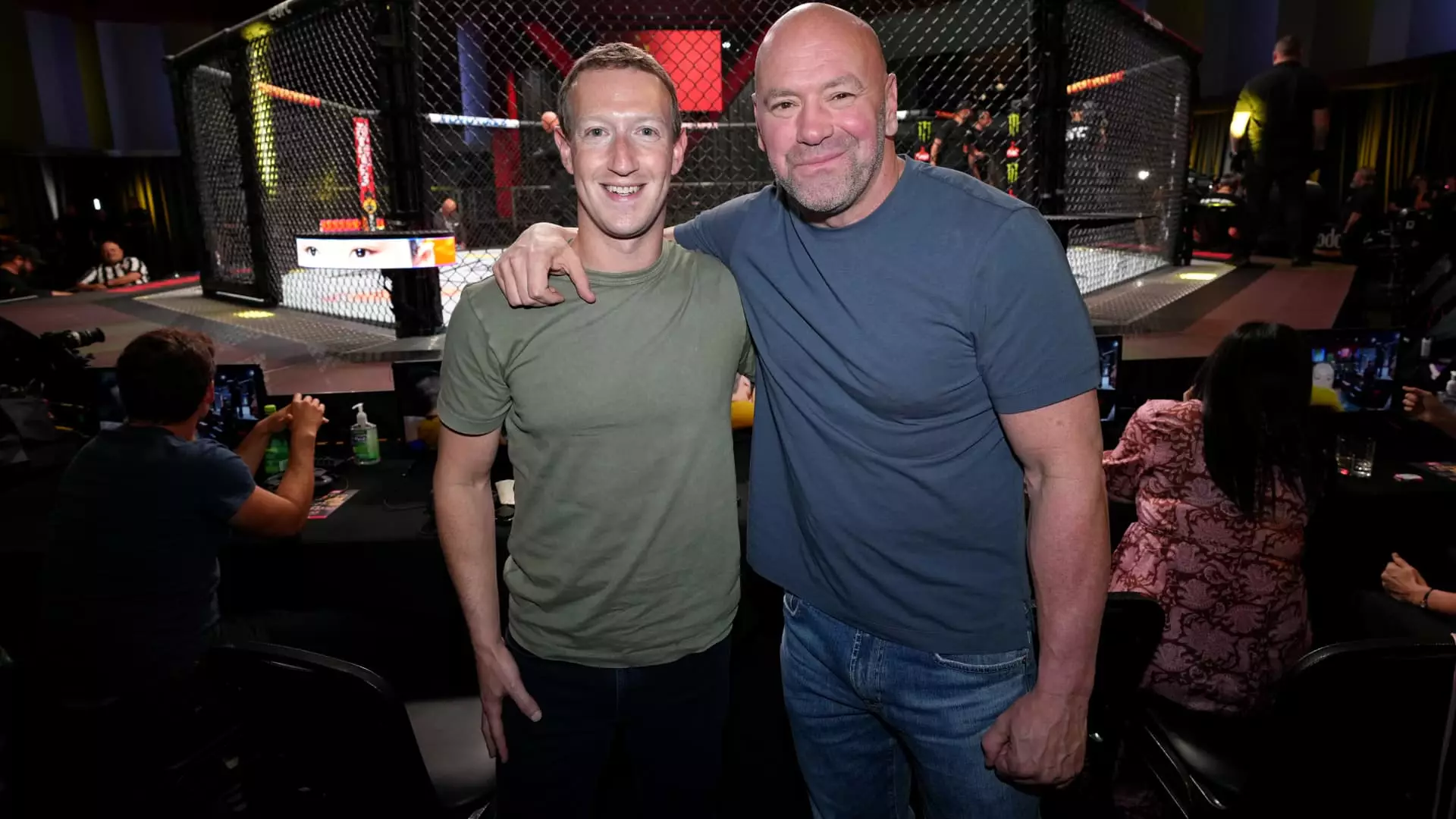In a surprising turn of events that bridges the worlds of sports, technology, and politics, Dana White, the charismatic CEO of the Ultimate Fighting Championship (UFC), has been appointed to the board of Meta, the parent company of Facebook. This appointment comes just two weeks prior to the inauguration of President-elect Donald Trump, a long-time associate of White. The implications of this alliance between one of the leading figures in the sports industry and a major tech platform like Meta unfold a complex narrative that begs deeper analysis.
Mark Zuckerberg, the CEO of Meta, has publicly expressed admiration for White’s entrepreneurial spirit and his success in shaping the UFC into a globally recognized brand. Zuckerberg’s Facebook post highlighted not just the business achievements of White, but also an intriguing personal connection, as he himself has dabbled in mixed martial arts, showcasing a growing affinity for the sport. This personal investment in combat sports illustrates a convergence of interests that could influence Meta’s engagement with the UFC and its fan base in the long term.
White’s presence on the Meta board might hint at potential strategies that leverage sports entertainment within the tech space. The UFC’s meteoric rise offers a plethora of marketing opportunities for Meta to tap into, particularly as digital platforms reshape how sports are consumed. However, the appointment raises eyebrows, given the historically fraught relationship between Zuckerberg and Trump during the latter’s initial term, thus unveiling a dual narrative of reconciliation and political maneuvering in the wake of the upcoming administration.
Dana White’s association with Trump expands beyond mere camaraderie; it dives into the political arena. White’s vocal support for Trump during the election signifies not only loyalty but also a strategic positioning that could have ramifications in both the sporting and business worlds. He has been an outspoken figure, and his words during Trump’s election night victory speech captured the essence of resilience that both he and Trump espouse.
Moreover, Meta’s financial contributions to Trump’s inaugural fund reveal the intersections between corporate strategy and political influence. Social media platforms like Facebook and Instagram are pivotal in shaping political narratives and voter engagement, and having a voice like White’s on Meta’s board could strategically align the platform with specific demographics and markets.
While White’s business acumen is commendable, it’s essential to evaluate the controversies that have surrounded him. His public apology following an incident where he was filmed slapping his wife raises questions about leadership ethics, domestic violence perceptions, and corporate governance. In a time when companies are being scrutinized for their leadership’s behavior, White’s appointment could cast a shadow over Meta, particularly as it aims to further integrate into contemporary cultural conversations around accountability and social responsibility.
Furthermore, Elon Musk’s fleeting relationship with the UFC umbrella underlines a broader trend of crossover between tech executives and the sports realm. Musk’s brief stint on the board of Endeavor Group, which owns the UFC, reflects an ongoing fascination within the tech sector to harness the economic power and cultural relevance of major sports brands, albeit with mixed results.
With other notable additions to Meta’s board, including figures like John Elkann and Charlie Songhurst, Zuckerberg envisions a transformative approach to technology and community engagement. The integration of sports ambassadors like White could lead to innovative strategies in digital content creation and marketing, particularly in areas intersecting sports, technology, and entertainment.
Dana White’s appointment to Meta’s board opens vast possibilities while also illuminating the tangled web of relationships between tech leaders and political figures. It presents an opportunity for Meta not just to enhance its market proposition through sports like UFC but also to dramatically reshape the narrative of technology’s role in contemporary society, illustrating the complexities and nuances of this pivotal moment.

